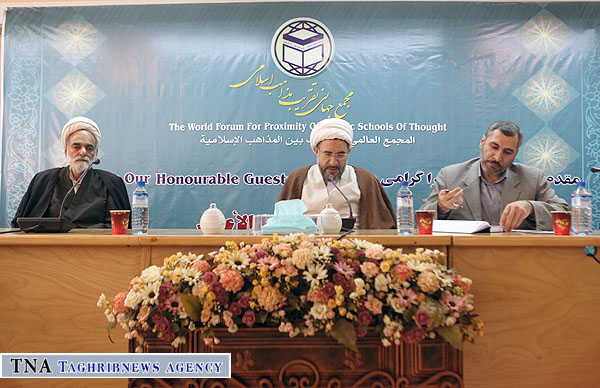Sectarian wars, a new step in anti-Islam moves


Secretary General of the World Forum for Proximity of Islamic Schools of Thought warned that the new phase of war against Islam is based on sectarian and anti-proximity movements.
Grand Ayatollah Mohsen Araki, Secretary General of the World Forum for Proximity of Islamic Schools of Thought in a meeting with the staff of the organization highlighted Islamic proximity not as a political objective but as a great mission that was perfectly fulfilled by Ahlul Bayt (AS), reported Taqrib News Agency (TNA).
He said,” Spreading Islamic unity is the lifestyle of Ahlul Bayt (AS).” and referred to Sunni students of Imam Sadeq (AS), sixth Shia Imam, who exceeded the Shia ones.
“We intend to follow the path of Ahlul Bayt (AS) so that, contrary to differences in Fiq’h principles, it works in full solidarity.” He noted and added” Once the objective is achieved, Islamic community will take a unified stance against the enemies.”
Ayatollah Araki said last year was the worst in anti-proximity attacks in Muslim world because the new phase of war with Islam is based on waging sectarian wars.
Top cleric expressed hope for a scientific progress in the field of Islamic proximity and referred to a week of Qur’anic activities to be held by the World Forum for Proximity of Islamic Schools of Thought because the holy book of Islam is the axis of unity among world Muslims.







